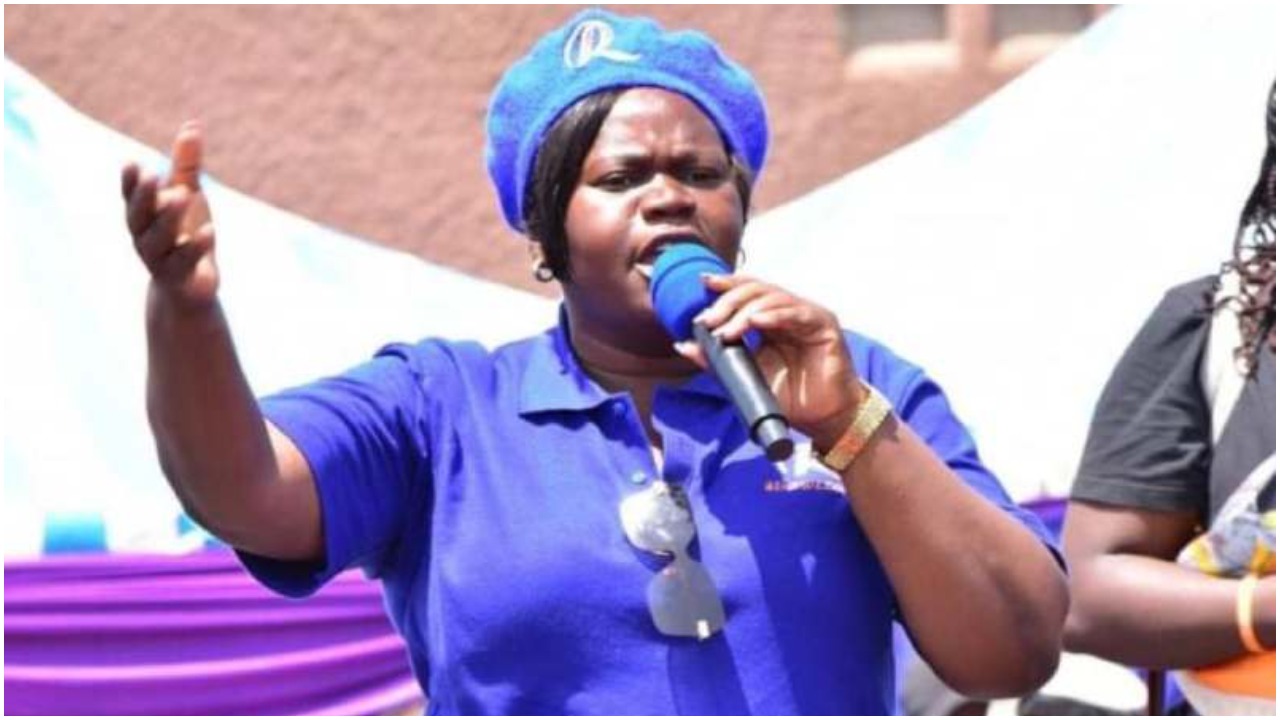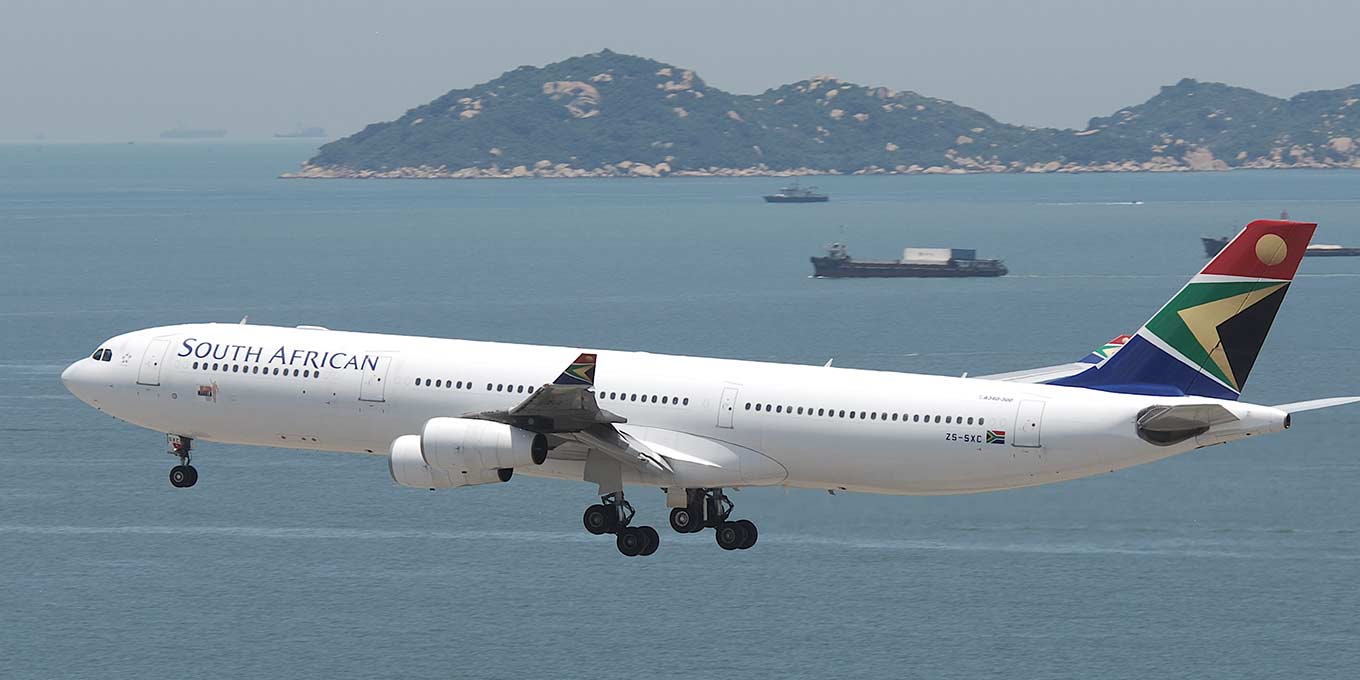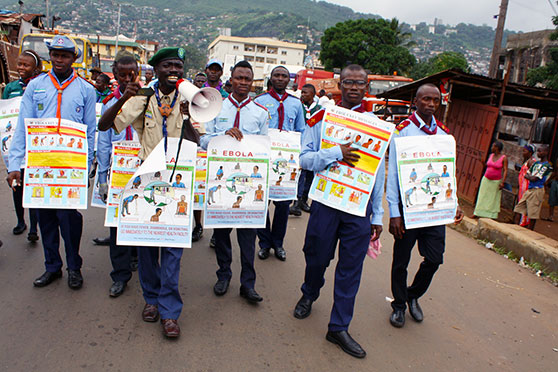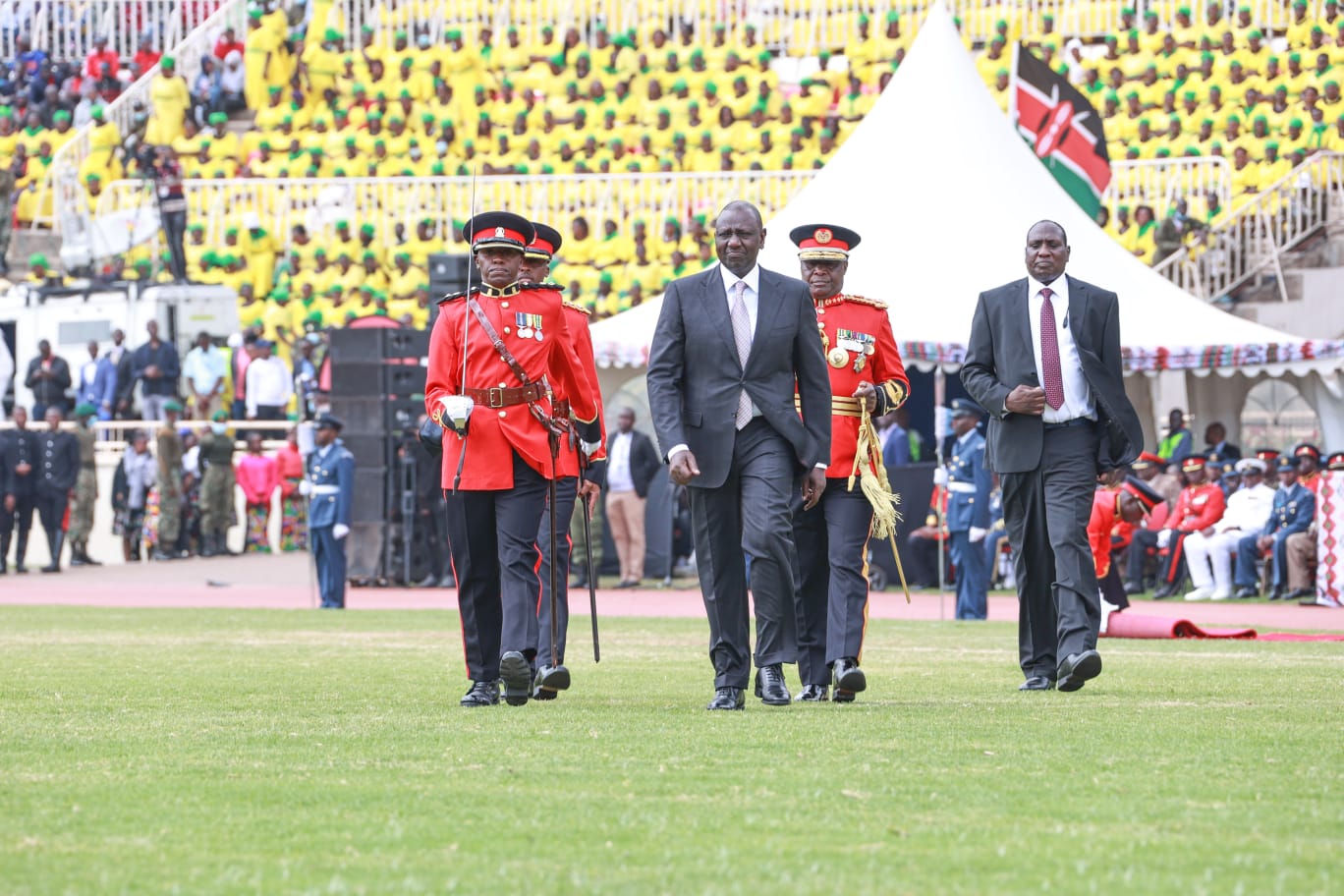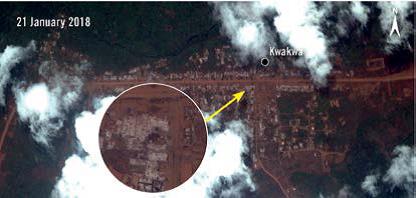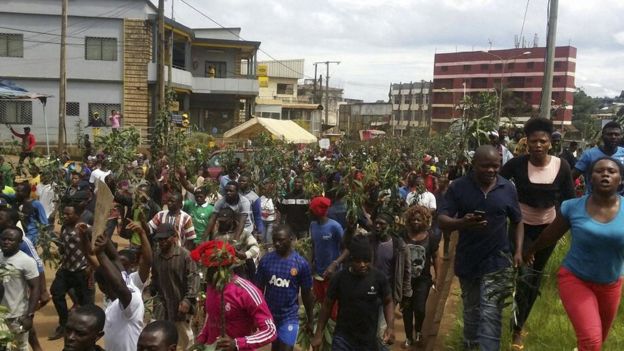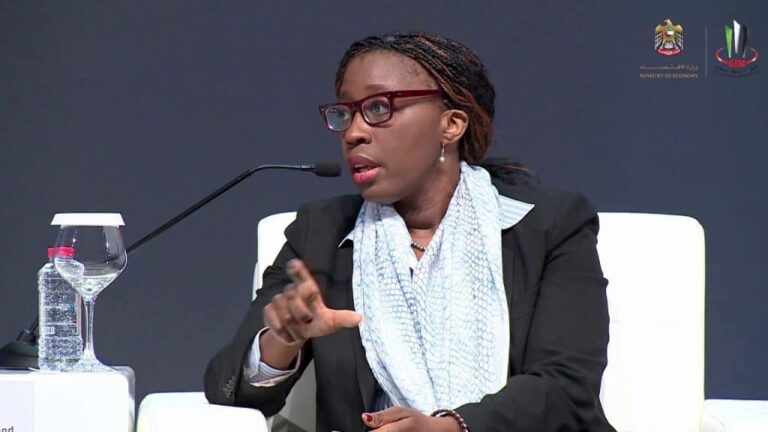Human Rights In English Speaking Regions:Amnesty Drops The Hammer on Cameroon
June 13, 2018 - Report And Recommendations Were Discussed With Senior Officials At The Presidency - Ilaria Allegrozzi Lake Chad Researcher By Ajong Mbapndah L [caption id="attachment_49200" align="alignleft" width="416"] High resolution imagery captured on 21 January 2018 shows Kwakwa has been almost completely razed. White ash blankets the areas where structures once stood. Again, cloud cover prevents full analysis of the area. ©Amnesty International.[/caption] While there may be no official reaction yet from the government of Cameroon on the recent Amnesty International report, Ilaria Allegrozzi, Lake Chad Researcher says the human rights group had very open and productive discussions on the findings with Senior Officials at the Presidency last week. “We hope that our message and recommendations will be taken on board,” says Allegrozzi whose research shows that people have been caught between two fires, victims of gross abuses by the army and acts of violence committed by armed separatists. In an exclusive interview with Pan African Visions, Ilaria Allegrozzi says the report was based on interviews with over 150 victims and eye witnesses of the flagrant human right violations such as unlawful killings, arbitrary arrests, torture and destruction of private property. Rather than resolving the crisis, the heavy handed response by the authorities have only empowered radical violent movements and created a climate of fear, according to the report from Amnesty International. While the report has ample documentation of gross excesses from the military with the burning of whole villages, killings, arbitrary arrest and torture of people in the course of military operations in the Anglophone regions, there are instances where armed separatists are faulted for attacks on security forces, state emblems schools and ordinary people. “We did not ask the question about conditions for peace but noted that the majority of them said that they won’t return unless there’s an independent state of Ambazonia ,” Allegrozzi said in response to what it will take for normalcy to return. Amnesty will continue to closely monitor developments and do follow up with Cameroon and international partners on its recommendations, Allegrozzi said. Thanks for accepting to discuss the recent Amnesty Report on Cameroon (A Turn for the worse), can you start with the numbers, those killed, number of refugees and other vital statistics that you found in your research? [caption id="attachment_49201" align="alignleft" width="416"]
High resolution imagery captured on 21 January 2018 shows Kwakwa has been almost completely razed. White ash blankets the areas where structures once stood. Again, cloud cover prevents full analysis of the area. ©Amnesty International.[/caption] While there may be no official reaction yet from the government of Cameroon on the recent Amnesty International report, Ilaria Allegrozzi, Lake Chad Researcher says the human rights group had very open and productive discussions on the findings with Senior Officials at the Presidency last week. “We hope that our message and recommendations will be taken on board,” says Allegrozzi whose research shows that people have been caught between two fires, victims of gross abuses by the army and acts of violence committed by armed separatists. In an exclusive interview with Pan African Visions, Ilaria Allegrozzi says the report was based on interviews with over 150 victims and eye witnesses of the flagrant human right violations such as unlawful killings, arbitrary arrests, torture and destruction of private property. Rather than resolving the crisis, the heavy handed response by the authorities have only empowered radical violent movements and created a climate of fear, according to the report from Amnesty International. While the report has ample documentation of gross excesses from the military with the burning of whole villages, killings, arbitrary arrest and torture of people in the course of military operations in the Anglophone regions, there are instances where armed separatists are faulted for attacks on security forces, state emblems schools and ordinary people. “We did not ask the question about conditions for peace but noted that the majority of them said that they won’t return unless there’s an independent state of Ambazonia ,” Allegrozzi said in response to what it will take for normalcy to return. Amnesty will continue to closely monitor developments and do follow up with Cameroon and international partners on its recommendations, Allegrozzi said. Thanks for accepting to discuss the recent Amnesty Report on Cameroon (A Turn for the worse), can you start with the numbers, those killed, number of refugees and other vital statistics that you found in your research? [caption id="attachment_49201" align="alignleft" width="416"] Pictures taken at the beginning of March 2018 in Belo, showing a burnt Toyota Picnic. According to evidence collected by Amnesty International, the vehicle was set ablaze by security forces manning a checkpoint at the Belo motor park on 2 February 2018. ©Amnesty International.[/caption] We did not compile any statistics registering the no of people (general population) killed; we have compiled stats registering the no of security forces (policemen, gendarmes, soldiers) killed by armed separatists since Sept 2017 to day and it is 44. 44 might well be an underestimation and we believe the number is higher. We also came up with stats registering the number of schools attacked by armed separatists. It’s 42 of which 36 burnt, the remaining either partially or totally destroyed. For this figure too, we think we might have underestimated the number of attacks. However, we only wanted to go public with the figures we were sure about 100 per 100. In terms of refugees (Anglophone Cameroonian requesting asylum in Nigeria): the official figures put out by the UN refugee agency (UNHCR) at May 2018 are of 20.400 (note this figure includes only those officially registered by UNHCR; in addition we believe there are at least some other 10.000 scattered around Nigeria in various isolated areas). Most of the refugees settled in cross river state, Nigeria; but some also are found in Benue state, the capital Abuja, Lagos and elsewhere. Note that those who fled (mostly last year and especially after Sept-Oct 2017 and after Dec. 2017) and are settled in cross river state are mostly from the SW region, from villages and cities very near to the border. There are also other people in the North and South West Regions who fled, but internally, within Cameroon. The no of IDPs (internally displaced people) in the North and South West regions is estimated at 160.000 (possibly underestimation). 160.000 is a figure put out by UN humanitarian agencies in Cameroon. Often times , the government and its supports cast doubts on the work and reports of Amnesty International, how was this research done and what measures did you take to ensure the findings were indisputable on facts and accuracy? We always stand by our findings. Our methodology is thorough and evidence solid. We have interviewed over 150 victims and eye-witnesses to Human Right violations by the security forces and acts of violence by the armed separatists, as well as families of victims, and a wide range of key informants from different sectors (lawyers, journalists, religious and traditional leaders, academics, human rights defenders, members of civil society, political leaders and activists within the separatist movement and groups, national and international human rights and security experts, and staff of the United Nations, INGOs). In addition we have collected, analyzed and verified material evidence, including videos, photographs, med records, court docs and sat imagery. What are some of the reactions you have received since the report was published, while it heavily indicts the government and its military for its excesses, it equally says armed separatist groups carried out violent attacks on the security forces, your take on reactions. We are still waiting for the official reaction of the government. We were able to visit Cameroon last week and met with the Director of the Civil Cabinet at the presidency. We shared the findings of the report. The discussion was open and productive. We hope that our messages and recommendations will be taken on board. When doing your research and producing the report, does Amnesty International take into account the notion of self defence? When you have villages razed down as described by you, people arrested and tortured, how do you expect them to react? Our research looks at the human rights impact of the crisis. We focused on the violence and human rights violations against the general population. Our research shows that the people have been caught between two fires, victims of the abuses by the army and the acts of violence committed by the armed separatists. We see instances where you mentioned schools been burnt down by separatist groups, did you not find it curious that even some of the schools heavily guarded by the army were still destroyed? In this case how do you attribute the destruction to separatist groups as you describe them? The cases we documented have been carefully verified. We have no doubt that all the cases we documented of attacks on schools were carried out by armed separatists. Sometimes it was difficult to attribute responsibility of attacks to specific separatists groups, some individuals acting in support of the general cause (armed struggle + secession) but failing to specifically mention which group they belong to. In our new briefing, we used the phrase “self-proclaimed armed separatists” to describe a spectrum of groups embracing an armed struggle for secession from Cameroon in order to create an independent state of “Ambazonia”. One of the most prominent groups, as you know, is the Ambazonia Defense Forces (ADF), which emerged in early 2017. But there are numerous other groups which also claim to be in active armed struggle in different locations across the North and South West regions, which appear heterogeneous and splintered in nature, often acting at local levels, in the absence of a coordinated, unified structure and political leadership. We have documented violence perpetrated by individuals or groups of individuals, who acted on their own initiative, but having expressed support to or known by their communities as acting in sympathy with a self-proclaimed armed group or the armed struggle for secession. Under what conditions are refugees both in Nigeria and those spread across the country living? The humanitarian situation of refugees is of concern but not catastrophic (compared to other humanitarian emergencies). Lots of solidarity from Nigerian families offering shelter, food, water. The question is how long is this sustainable for? Durable solutions need to be found to ensure refugees’ needs are addressed and conditions for their return are met. For the refugees in Nigeria, what international protections or protocols cover them, was the Nigerian government right in arresting and deporting Ayuk Tabe and others from Southern Cameroons who sought refuge there? We have called on the government of Nigeria to respect its international obligations with respect to the rights of refugees, as per the 1951 UN refugee convention which Nigeria has duly ratified. We have condemned the extradition of Ayuk Tabe and the other 46 Anglophones. We are calling on the government of Cameroon to reveal their whereabouts, provide them access to lawyers/families/doctors, and stop their illegal-arbitrary-incommunicado detention. As you know the risk of torture is very high when people are detained in secret. We have widely documented the systematic use of torture by Cameroonian security forces and intelligent services in illegal detention facilities, including military bases.(see report Secret torture chamber released last year in July). A number of people from the North West and South West Regions have been handed lengthy jail sentences, what do you make of the way the judicial process in Cameroon is working in this time of crisis? We have condemned the arbitrary arrest and detention of hundreds of people arrested since the beginning of last year in the context of peaceful demonstrations, security operations, etc. We have called on authorities to make sure arrests and detentions are conducted in compliance with international human rights and domestic law, and ensure all security forces are trained on and understand these norms. We also asked them to ensure that there are sufficient, recognizable and precise grounds for arrest and that evidence is appropriately gathered. A suspect must only be arrested if there is a reasonable suspicion that he or she may have committed a crime. If there are insufficient grounds for arrest, the person must be immediately released. Also we have recommended authorities to ensure that detainees are promptly brought before an independent civilian court that upholds international fair-trial standards, are informed of the charges against them, and have knowledge of and access to legal procedures allowing them to challenge the legality of their detention. As we have largely documented in the context of the fight against Boko Haram (we have observed dozens of trial proceedings at the military courts, including the trial of Mr Felix Agbor Balla, Mr Fontem and other Anglophones), we believe that there are several challenges for the Cameroonian justice system. LACK OF INDEPENDENCE OF MILITARY COURTS - Military trials in Cameroon are heard by three people: the tribunal president, who is a military or civilian judge, and two military officers. While the tribunal president is trained in the law, the two military officers lack legal training. The lack of independence and impartiality of military courts raises serious due process concerns. Because such courts belong to the executive rather than the judicial branch of government, and are generally staffed by military officers subservient to the executive, they typically have an institutional tendency to defer to the executive’s dictates. Recognizing military courts’ inherent bias, the Principles on Fair Trial in Africa state that they “should not in any circumstances whatsoever have jurisdiction over civilians.” In addition, human rights mechanisms such as the UN Working Group on Arbitrary Detention have stated categorically that military courts should not be authorized to impose the death penalty.183 Amnesty International considers that the jurisdiction of military courts should be limited to trials of military personnel for breaches of military discipline. THIN AND UNRELIABLE EVIDENCE Perhaps the most serious failing in many of the proceedings we observed is the lack of solid evidence implicating the defendants. For the cases involving Boko Haram suspects, for ex, the evidence presented by the prosecution is in the form of written affidavits included in the case file, frequently from unnamed—and thus, to the defence, unknown—sources. The prosecution often relies heavily on circumstantial evidence that might plausibly raise a suspicion of criminal activity, but which should not be sufficient to support a conviction. How do you sum up the mindsets of the 150 victims and eye witnesses that you spoke to when it comes to lasting solutions to the crisis? At least to the majority of people you spoke to what are the prerequisites for peace? We did not ask the question about conditions for peace. We noted that the majority of them said that they won’t return unless there’s an independent state of Ambazonia (!) [caption id="attachment_49202" align="alignleft" width="624"]
Pictures taken at the beginning of March 2018 in Belo, showing a burnt Toyota Picnic. According to evidence collected by Amnesty International, the vehicle was set ablaze by security forces manning a checkpoint at the Belo motor park on 2 February 2018. ©Amnesty International.[/caption] We did not compile any statistics registering the no of people (general population) killed; we have compiled stats registering the no of security forces (policemen, gendarmes, soldiers) killed by armed separatists since Sept 2017 to day and it is 44. 44 might well be an underestimation and we believe the number is higher. We also came up with stats registering the number of schools attacked by armed separatists. It’s 42 of which 36 burnt, the remaining either partially or totally destroyed. For this figure too, we think we might have underestimated the number of attacks. However, we only wanted to go public with the figures we were sure about 100 per 100. In terms of refugees (Anglophone Cameroonian requesting asylum in Nigeria): the official figures put out by the UN refugee agency (UNHCR) at May 2018 are of 20.400 (note this figure includes only those officially registered by UNHCR; in addition we believe there are at least some other 10.000 scattered around Nigeria in various isolated areas). Most of the refugees settled in cross river state, Nigeria; but some also are found in Benue state, the capital Abuja, Lagos and elsewhere. Note that those who fled (mostly last year and especially after Sept-Oct 2017 and after Dec. 2017) and are settled in cross river state are mostly from the SW region, from villages and cities very near to the border. There are also other people in the North and South West Regions who fled, but internally, within Cameroon. The no of IDPs (internally displaced people) in the North and South West regions is estimated at 160.000 (possibly underestimation). 160.000 is a figure put out by UN humanitarian agencies in Cameroon. Often times , the government and its supports cast doubts on the work and reports of Amnesty International, how was this research done and what measures did you take to ensure the findings were indisputable on facts and accuracy? We always stand by our findings. Our methodology is thorough and evidence solid. We have interviewed over 150 victims and eye-witnesses to Human Right violations by the security forces and acts of violence by the armed separatists, as well as families of victims, and a wide range of key informants from different sectors (lawyers, journalists, religious and traditional leaders, academics, human rights defenders, members of civil society, political leaders and activists within the separatist movement and groups, national and international human rights and security experts, and staff of the United Nations, INGOs). In addition we have collected, analyzed and verified material evidence, including videos, photographs, med records, court docs and sat imagery. What are some of the reactions you have received since the report was published, while it heavily indicts the government and its military for its excesses, it equally says armed separatist groups carried out violent attacks on the security forces, your take on reactions. We are still waiting for the official reaction of the government. We were able to visit Cameroon last week and met with the Director of the Civil Cabinet at the presidency. We shared the findings of the report. The discussion was open and productive. We hope that our messages and recommendations will be taken on board. When doing your research and producing the report, does Amnesty International take into account the notion of self defence? When you have villages razed down as described by you, people arrested and tortured, how do you expect them to react? Our research looks at the human rights impact of the crisis. We focused on the violence and human rights violations against the general population. Our research shows that the people have been caught between two fires, victims of the abuses by the army and the acts of violence committed by the armed separatists. We see instances where you mentioned schools been burnt down by separatist groups, did you not find it curious that even some of the schools heavily guarded by the army were still destroyed? In this case how do you attribute the destruction to separatist groups as you describe them? The cases we documented have been carefully verified. We have no doubt that all the cases we documented of attacks on schools were carried out by armed separatists. Sometimes it was difficult to attribute responsibility of attacks to specific separatists groups, some individuals acting in support of the general cause (armed struggle + secession) but failing to specifically mention which group they belong to. In our new briefing, we used the phrase “self-proclaimed armed separatists” to describe a spectrum of groups embracing an armed struggle for secession from Cameroon in order to create an independent state of “Ambazonia”. One of the most prominent groups, as you know, is the Ambazonia Defense Forces (ADF), which emerged in early 2017. But there are numerous other groups which also claim to be in active armed struggle in different locations across the North and South West regions, which appear heterogeneous and splintered in nature, often acting at local levels, in the absence of a coordinated, unified structure and political leadership. We have documented violence perpetrated by individuals or groups of individuals, who acted on their own initiative, but having expressed support to or known by their communities as acting in sympathy with a self-proclaimed armed group or the armed struggle for secession. Under what conditions are refugees both in Nigeria and those spread across the country living? The humanitarian situation of refugees is of concern but not catastrophic (compared to other humanitarian emergencies). Lots of solidarity from Nigerian families offering shelter, food, water. The question is how long is this sustainable for? Durable solutions need to be found to ensure refugees’ needs are addressed and conditions for their return are met. For the refugees in Nigeria, what international protections or protocols cover them, was the Nigerian government right in arresting and deporting Ayuk Tabe and others from Southern Cameroons who sought refuge there? We have called on the government of Nigeria to respect its international obligations with respect to the rights of refugees, as per the 1951 UN refugee convention which Nigeria has duly ratified. We have condemned the extradition of Ayuk Tabe and the other 46 Anglophones. We are calling on the government of Cameroon to reveal their whereabouts, provide them access to lawyers/families/doctors, and stop their illegal-arbitrary-incommunicado detention. As you know the risk of torture is very high when people are detained in secret. We have widely documented the systematic use of torture by Cameroonian security forces and intelligent services in illegal detention facilities, including military bases.(see report Secret torture chamber released last year in July). A number of people from the North West and South West Regions have been handed lengthy jail sentences, what do you make of the way the judicial process in Cameroon is working in this time of crisis? We have condemned the arbitrary arrest and detention of hundreds of people arrested since the beginning of last year in the context of peaceful demonstrations, security operations, etc. We have called on authorities to make sure arrests and detentions are conducted in compliance with international human rights and domestic law, and ensure all security forces are trained on and understand these norms. We also asked them to ensure that there are sufficient, recognizable and precise grounds for arrest and that evidence is appropriately gathered. A suspect must only be arrested if there is a reasonable suspicion that he or she may have committed a crime. If there are insufficient grounds for arrest, the person must be immediately released. Also we have recommended authorities to ensure that detainees are promptly brought before an independent civilian court that upholds international fair-trial standards, are informed of the charges against them, and have knowledge of and access to legal procedures allowing them to challenge the legality of their detention. As we have largely documented in the context of the fight against Boko Haram (we have observed dozens of trial proceedings at the military courts, including the trial of Mr Felix Agbor Balla, Mr Fontem and other Anglophones), we believe that there are several challenges for the Cameroonian justice system. LACK OF INDEPENDENCE OF MILITARY COURTS - Military trials in Cameroon are heard by three people: the tribunal president, who is a military or civilian judge, and two military officers. While the tribunal president is trained in the law, the two military officers lack legal training. The lack of independence and impartiality of military courts raises serious due process concerns. Because such courts belong to the executive rather than the judicial branch of government, and are generally staffed by military officers subservient to the executive, they typically have an institutional tendency to defer to the executive’s dictates. Recognizing military courts’ inherent bias, the Principles on Fair Trial in Africa state that they “should not in any circumstances whatsoever have jurisdiction over civilians.” In addition, human rights mechanisms such as the UN Working Group on Arbitrary Detention have stated categorically that military courts should not be authorized to impose the death penalty.183 Amnesty International considers that the jurisdiction of military courts should be limited to trials of military personnel for breaches of military discipline. THIN AND UNRELIABLE EVIDENCE Perhaps the most serious failing in many of the proceedings we observed is the lack of solid evidence implicating the defendants. For the cases involving Boko Haram suspects, for ex, the evidence presented by the prosecution is in the form of written affidavits included in the case file, frequently from unnamed—and thus, to the defence, unknown—sources. The prosecution often relies heavily on circumstantial evidence that might plausibly raise a suspicion of criminal activity, but which should not be sufficient to support a conviction. How do you sum up the mindsets of the 150 victims and eye witnesses that you spoke to when it comes to lasting solutions to the crisis? At least to the majority of people you spoke to what are the prerequisites for peace? We did not ask the question about conditions for peace. We noted that the majority of them said that they won’t return unless there’s an independent state of Ambazonia (!) [caption id="attachment_49202" align="alignleft" width="624"] Protesters were marching with peace plans at the onset.The heavy handed response by Cameroonian authorities has empowered violent movements and created a climate of fear according to Amnesty International[/caption] Drawing from lessons from other parts of Africa and the world, why do you think the international has remained largely indifferent to the crisis in Cameroon, how bad does it have to get before more is done on their part to help in finding solutions? We do not believe the international community has remained indifferent. On the contrary, it did mobilized and was at times vocal. This is definitely thanks also to the powerful diaspora, how it played out its messages and sometimes its propaganda. We think that there was definitely less attention about the Boko haram conflict, despite the scale, amount, gravity of HR violations committed by the security forces in the fight against Boko haram was way bigger than what we have seen in the N and S west. What were some of the challenges involved in the production of the reports, how risky was it for those providing you information or associates of yours in the country who participated in compiling the report? Access to the South and North West was limited / restricted and we had to find alternative/creative ways to collect and verify info, using for example satellite imagery to assess the scale of destruction of certain villages, as we were not able to go physically there What next for Amnesty International in Cameroon after this report? We’ll continue to monitor the situation on the ground, collect info about human rights violations and violence. We will follow up on the recommendations outlined in the report with both the Cameroonian authorities and the international partners of Cameroon, through advocacy, campaigning and lobbying.
Protesters were marching with peace plans at the onset.The heavy handed response by Cameroonian authorities has empowered violent movements and created a climate of fear according to Amnesty International[/caption] Drawing from lessons from other parts of Africa and the world, why do you think the international has remained largely indifferent to the crisis in Cameroon, how bad does it have to get before more is done on their part to help in finding solutions? We do not believe the international community has remained indifferent. On the contrary, it did mobilized and was at times vocal. This is definitely thanks also to the powerful diaspora, how it played out its messages and sometimes its propaganda. We think that there was definitely less attention about the Boko haram conflict, despite the scale, amount, gravity of HR violations committed by the security forces in the fight against Boko haram was way bigger than what we have seen in the N and S west. What were some of the challenges involved in the production of the reports, how risky was it for those providing you information or associates of yours in the country who participated in compiling the report? Access to the South and North West was limited / restricted and we had to find alternative/creative ways to collect and verify info, using for example satellite imagery to assess the scale of destruction of certain villages, as we were not able to go physically there What next for Amnesty International in Cameroon after this report? We’ll continue to monitor the situation on the ground, collect info about human rights violations and violence. We will follow up on the recommendations outlined in the report with both the Cameroonian authorities and the international partners of Cameroon, through advocacy, campaigning and lobbying.

